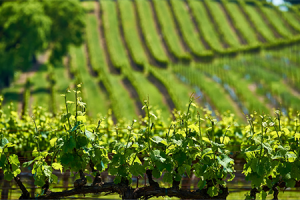- The aim of the MARLIT project is to improve the knowledge and development of tools to understand the impacts of current and future storms on the coast (damage, flooding and population security), to support the management of coastal risk by government bodies. Participants in this project include the Maritime Engineering Laboratory (LIM) of the Universitat Politècnica de Catalunya - BarcelonaTech (UPC).
- Climate change is dramatically affecting coastal zones. Storms are altering beaches and urban installations on the coastline, producing serious damage to marine ecosystems caused by pollution.
- To improve efficiency and efficacy in the use of irrigation water in agriculture and in the transformation of foods, the GroPeRBot emerged. Participants include the Center for Industrial Equipment Design-Dynamics of Machines (CDEI) and the Geophysics and Earthquake Engineering (GiES) group of the Universitat Politècnica de Catalunya - BarcelonaTech (UPC).
- The Automatic Hyperspectral Pest Counter, a project developed by the Sensors, Instrumentation and Systems Development Center (CD6) of the Universitat Politècnica de Catalunya (UPC), has been completed successfully.
- The Agricultural Machinery Unity (UMA) of the Universitat Politècnica de Catalunya - BarcelonaTech (UPC) has participated in the GOPHYTOVID project to develop an automatic, universal device for the variable application of plant health products, based on plant vigour maps.
- The Agricultural Machinery Unit (UMA) of the UPC is coordinating the national project Smart Spraying for Sustainable Vineyards and Olive Trees (PIVOS). The aim of the project is to demonstrate the benefits of smart spraying of plant health products for sustainable use of pesticides in vineyards and olive trees. These benefits include maintaining biological efficacy and reducing economic and environmental costs.
- Researchers at the Institute of Robotics and Industrial Informatics (IRI) and the Agricultural Machinery Unity (UMA) of the UPC are working on the European project CANOPIES,whose aim is to explore a new paradigm of collaboration between people and robots in the context of precision agriculture for permanent crops. The focus is the operation of harvesting and pruning dessert grape vines.
- 20/12/2020Project Headerrightno-repeat;left top;;auto20px The Agricultural Machinery Unit (UMA), and the Centre for Sensors, Instruments and Systems Development (CD6) of the UPC are participating in the European […]
















